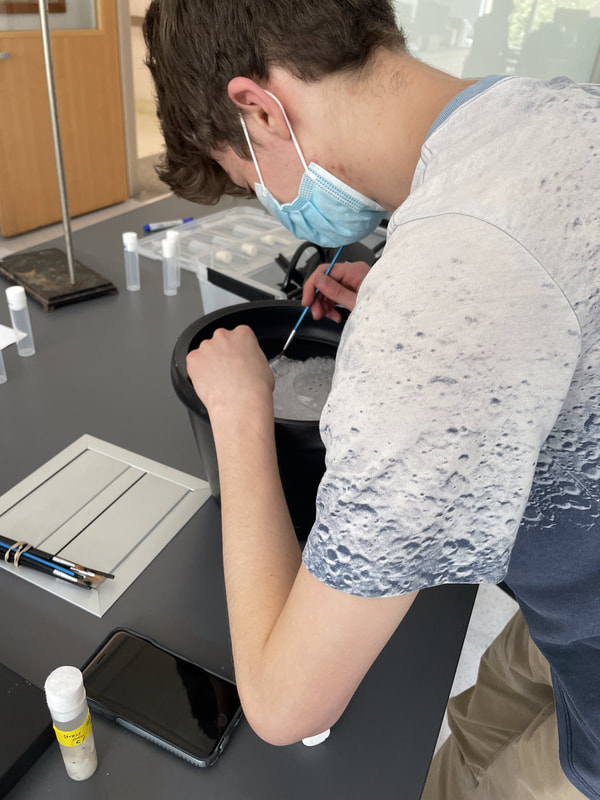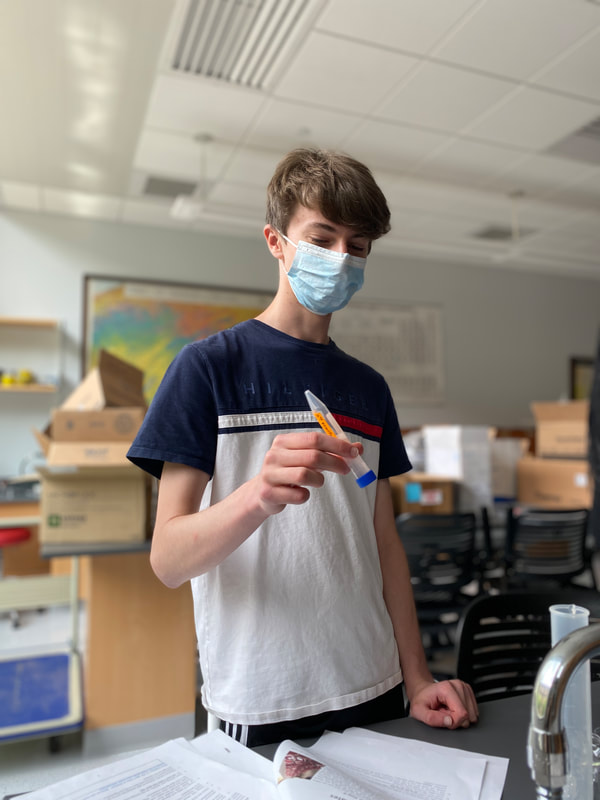|
Hi everyone! My name is Conrad Schaumburg and I am a rising senior at Germantown Friends High School. I am the leader of Brainstorm, my school’s neuroscience and psychology club. Since my freshman year I have competed in the International Brain Bee neuroscience competition placing fourth, second and first in the Philadelphia regional competition. This year I won third place at the National competition out of forty competitors, representing their respective regions. I am hoping this accomplishment, partnering with the International Youth Neuroscience Association, and brainstorming (pun intended) with the club’s faculty advisor to develop new, interactive activities will revitalize and expand the club. I am also an active member of my school’s Literary magazine review board and Philosophy club. My favorite philosophy book is Doing Good Better, which is about applying strategic planning and inquiry to the impactful decisions in our life-- how much and why we give to charity, which career path to pursue, in order to chose the option that will yield the most good for others. Unlike most utilitarian arguments, it considers the deontological perspective and says that you should only give as much of your resources as you can without burning out your effectiveness or charitable passion. I think this accommodation of both sides of the utilitarian-deontological ethical debate allows for the greatest amount of people to lead ethical lives, marking a truly effective philosophy. I would absolutely recommend reading this book! It gives a well-constructed practical philosophy for life; it’s life changing! Before TRIP started this summer, I engaged in a internship led by Georgetown University and the NGO Leadership Initiatives focusing on neuroethics and cognitive-social neuroscience. This experience deepened my interest in neuroethics; I think this field is becoming increasingly vital as the capability of neuroscience and neurotechology increases rapidly. Neuroscience is quickly becoming an international field, encountering different cultures’ ethics which could create social friction. Outside of school, I like to run, hike, and play soccer. Running is definitely my favorite though. I have not been able to do any of these things or any other form of vigorous activities for the past year and a half because I have a ligament laxity injury to my right sternoclavicular joint-- the joint where your collarbone connects to your breastbone. But I’m getting injections to help it heal starting this week and I’m optimistic about it. So you don’t have to worry about me. This lengthy stay from exercise has made me appreciate how much I enjoy it and increased my drive to exercise -- hard!-- when I finally can. This coming year I’m hoping to be able to run track for at least two seasons and workout with the weight coach between the final bell and the start of pratice. This might sound masochistic, but I’ve been craving this for a long time and I think I’ll love it. As you can probably tell, I have a passion for neuroscience and discovery. Naturally, I am hoping to pursue a career in neuroscience research. I applied to TRIP to gain lab experience and to determine if lab research is something I truly enjoy. Yesterday, our first day of the program, we chatted and got to know our classmates and practiced micropipetting to create solutions and dilutions. We also prepared fly food for our first experiment, calculating the correct concentration of drug to add to the food. I had a lot of fun doing even this basic lab work; a research career is looking pretty promising so far. My only reservation from the first day is that not all the science research field will be as fun as TRIP, my classmates, Dr. Leystra, and our TAs.
0 Comments
Your comment will be posted after it is approved.
Leave a Reply. |
Archives
April 2024
Categories
All
|


 RSS Feed
RSS Feed